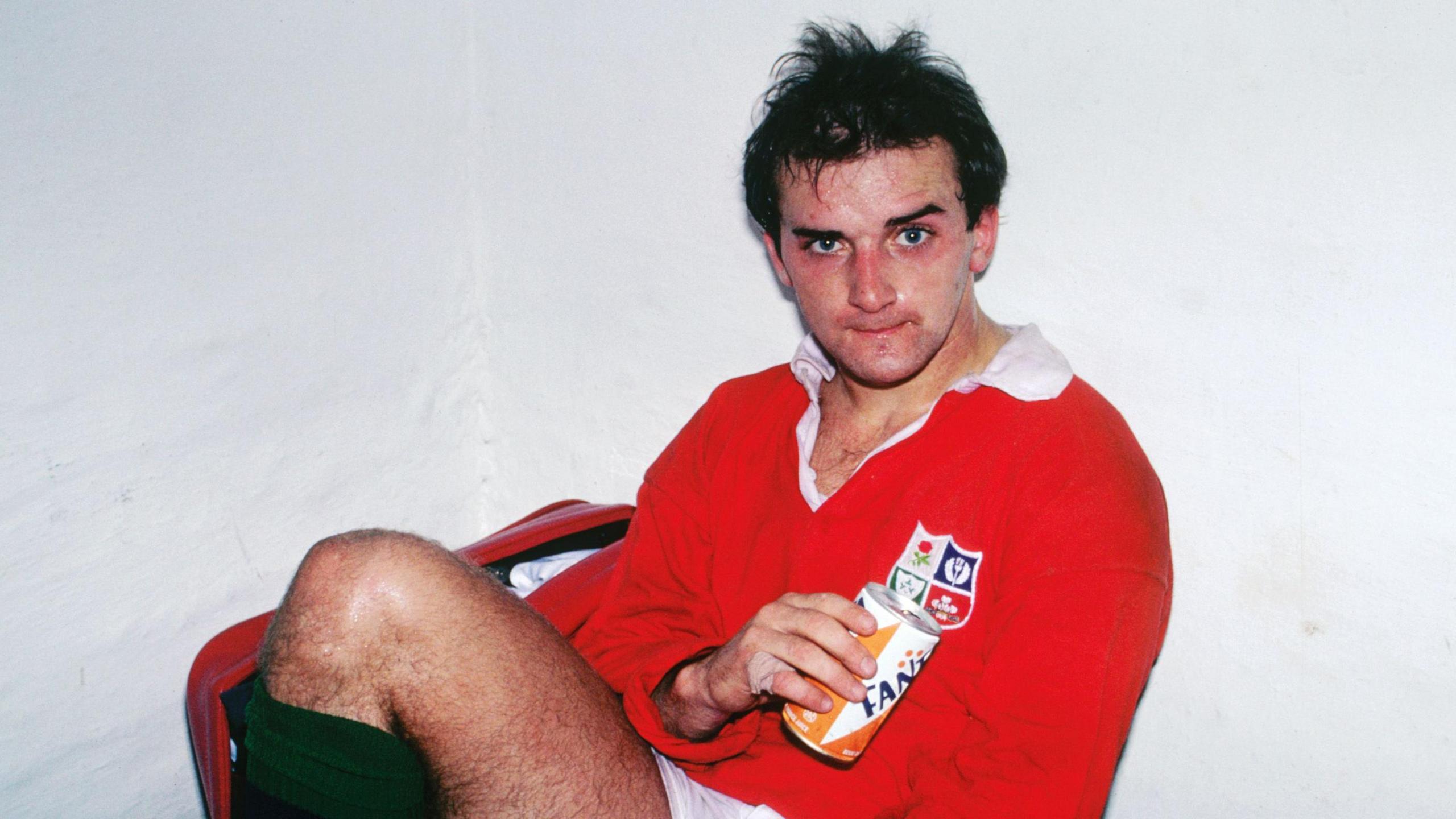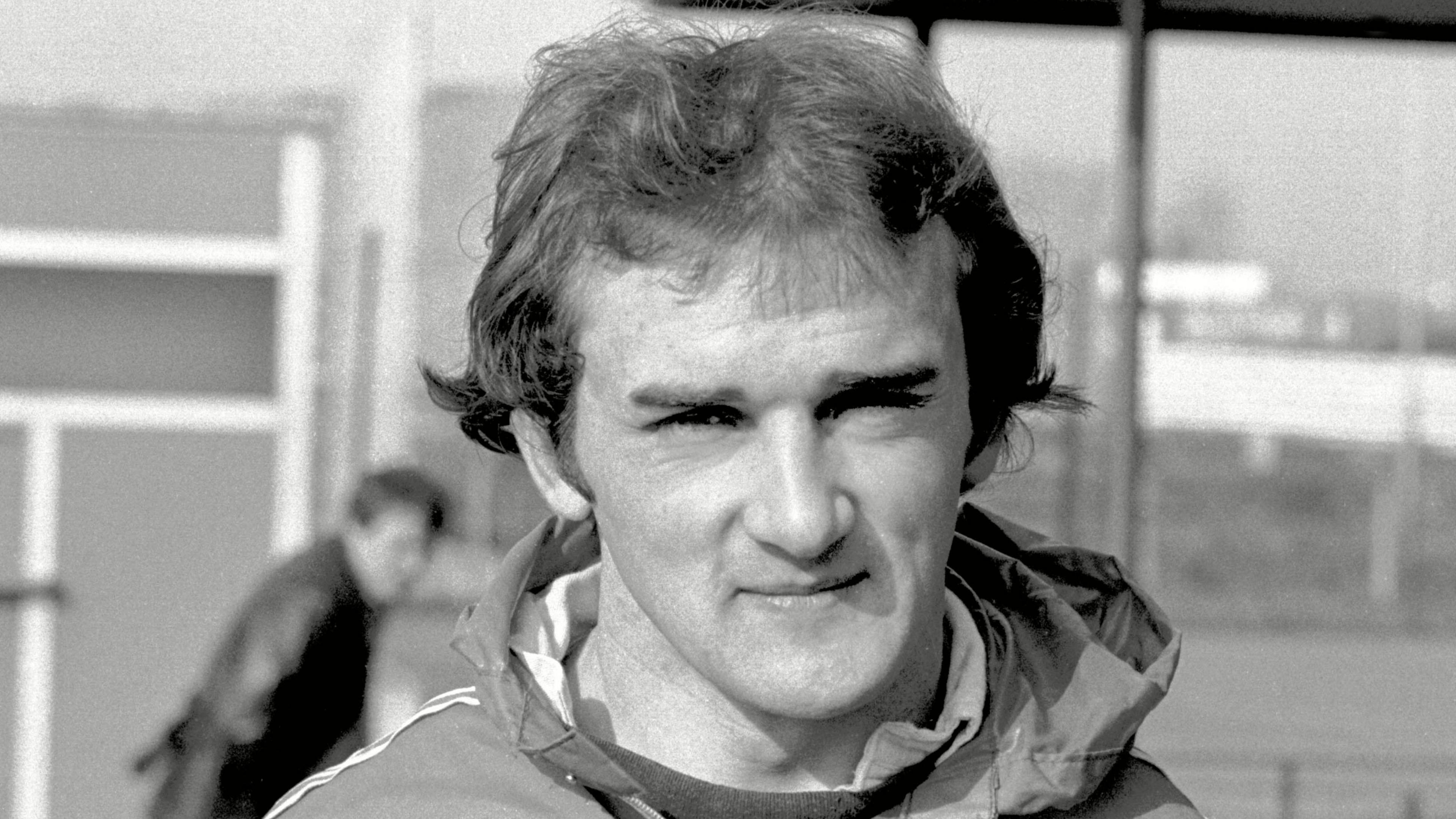Ex-Wales and Lions player Morgan dies

Peter Morgan toured with the British and Irish Lions in South Africa, with the hosts winning the Test series 3-1
- Published
Former Wales and British and Irish Lions player Peter Morgan has died, aged 65.
Morgan toured South Africa with the Lions in 1980 and captained Llanelli to victory over Australia.
He created a sensation in his first season in senior rugby when he broke into the Wales squad as a teenager.
As a utility back, he played - uniquely - in every three-quarter position for both Wales and the Lions. He played for Wales five times.
Born in Haverfordwest on 1 January, 1959, Morgan won a Welsh youth cap at St Helen's in 1977 against a France side featuring an emerging Serge Blanco, but a broken ankle robbed him of the vice-captaincy and more caps the next season.
Able to play at fly-half and centre, he learned from being in the same club set-up as Phil Bennett and displaced the ageing Wales and Lions centre Roy Bergiers.
Morgan was a pacy, skillful, a fitness fanatic and a fine seven-a-side practitioner.
In his autobiography, former Wales and Lions wing JJ Williams wrote of Morgan: "I can vouch for the fact that it was a pleasure to play outside him, even if I couldn't understand a word he spoke in his Pembrokeshire dialect."
In 1980, Morgan toured with the Barbarians before winning his first Five Nations cap as replacement on St David's Day, 1980 in a 17-6 victory over Scotland.
His full debut, at outside-half, followed against Ireland at Lansdowne Road two weeks later, when he had an uncomfortable afternoon after a charge down and try by Cieran Fitzgerald in a 21-7 defeat.
But by then Morgan had already done enough to earn his Lions place, at the age of 21.
The tour was not a success for the Lions, who lost the Test series 3-1, but won all their provincial encounters, with Morgan playing in seven games.
The late Carwyn James, the legendary 1971 Lions coach, said of Morgan: "Peter was the infant of the party in years, but more gifted than most.
"He had to carry the utility tag. Utility players fill gaps and on the 1980 tour there were few gaps for him to fill, yet one of the severest criticisms of the management is that they neglected him."
Shortly afterwards, Morgan turned down a large offer to play professional rugby league for St Helens.
He won the last of his Wales caps against Ireland at the National Stadium in 1981, replacing Steve Fenwick.
Wales won 9-8, but Morgan was forced to retire with broken ribs after a heavy tackle by opposite number David Irwin.
As a schoolboy, he had stood on the tanner bank to witness Llanelli's famous win over the All Blacks at Stradey Park in 1972, which laid the foundation for his ambition to pull on the scarlet shirt.
One of Morgan's Llanelli highlights was the win over Australia in November 1984.
The touring Wallabies were the first and only Australian side to achieve a Grand Slam in the four tests against the home nations.
The Scarlets' triumph, on a sodden pitch, was all the more remarkable because they were shorn of their internationals, who were preparing to face Australia with Wales four days later.
Speaking about Morgan, the late Wales and Lions icon Phil Bennett said: "Peter was shy but gutsy with accurate kicking out of hand; fine distribution skills and ability to cut defences to shreds.
"He suffered setbacks at vital stages in his career and was unlucky not to have won many more caps."

Peter Morgan pictured in 1979
Morgan represented Pembrokeshire at every level from schools to senior rugby.
Morgan played in Llanelli's WRU Challenge Cup final victory over Cardiff in 1985, but his career was cut short by a broken leg suffered in a derby against Swansea.
Though he returned to action after a year out, his best days had gone.
After retirement Morgan entered local politics, sitting as an independent member on Pembrokeshire County Council for 16 years.
He served as chair and vice-chair of the authority, and also sat on the Pembrokeshire Coast National Park Authority.
Morgan met his wife, Helen, via his rugby career and is survived by Helen, daughters Nia and Lowri and grandchildren Seren and Dewi.